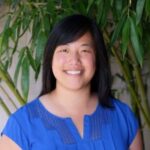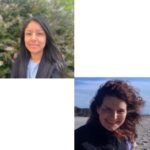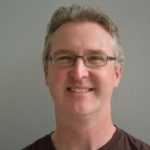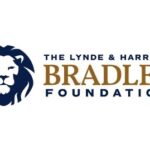CSDE Research Scientist and Biodemography Lab Director Tiffany Pan Leads Biomarker Data Collection for Wave 2 of the Vietnam Health and Aging Study
|
CSDE Biodemography Lab Director and Research Scientist Tiffany Pan and the CSDE Biodemography Lab contributed to the biomarker data collection for Wave 2 of the Vietnam Health and Aging Study. Pan consulted on the study design, coordinated international biospecimen shipment, conducted in person training of lab staff at Hanoi Medical University, assessed the quality control of lab results, and collaborated on the dissemination of study findings.
For the study, hair cortisol measurement was conducted directly in the CSDE Biodemography Lab at the University of Washington. This technique provides an integrated measure of cortisol levels over time, which may be important for studying stress response. Pan and the biodemography lab also supported biochemical analyses (conventional and multiplex immunoassays) done at Hanoi Medical University by assisting with assay selection, supplies procurement, laboratory training, and data processing.
The multi-year Vietnam Health and Aging Study, led by Kim Korinek (External Affiliate, University of Utah) and Zachary Zimmer (Mount Saint Vincent University), aims to understand the long term effects of war exposure in Vietnam. Tiffany Pan’s biomarker data collection support was conducted in collaboration with CSDE Affiliate Melanie Martin also of the CSDE Biodemography Lab. These biomarker results were presented by Rob Tennyson (CSDE Alumni) at the Gerontological Society of America meeting, and a related manuscript is forthcoming.
To arrange a consulting appointment with Tiffany Pan, or any of CSDE’s scientific support staff, please use the CSDE Science Core Consultation Request form.
(read more) |
 |
Kenworthy Announced as 2025 Andrew Carnegie Fellow
|
The Carnegie Corporation of New York recently announced CSDE Affiliate Nora Kenworthy as a member of the 2025 class of the Andrew Carnegie Fellows Program. At a highly polarized time for many health issues, Kenworthy’s project, “Public Health in Polarized Times: Finding “Islands of Solidarity” for Effective Digital Public Health Campaigns in the U.S.” aims to identify, broaden, and deepen “islands of solidarity” around core public health values and messages. Her project will identify where Americans find common ground and purpose when it comes to their health, and work with institutional partners to develop, test, and refine digital messaging strategies to decrease polarization and build common cause in the realm of population health. Read more about the project and Dr. Kenworthy’s work here.
(read more) |
 |
Martinez and Guttmannova Co-Author Study on Pandemic-Era Trends in Young Adult Use of Cannabis and Other Drugs
|
Although the COVID-19 pandemic may have affected young adults’ use of cannabis and other drugs, more research is needed to precisely estimate these effects. In a recent study published in the American Journal of Preventive Medicine (AJPM) Focus, Charles Fleming and CSDE Affiliates Griselda Martinez and Katarina Guttmannova (Psychiatry and Behavioral Sciences) and colleagues analyze how the COVID-19 pandemic affected substance use among young adults in Washington State using data collected annually from 2016 to 2021. Cannabis use steadily increased over time, with no major shifts during the pandemic, while the use of alcohol, cigarettes, and nonprescribed pain relievers declined, with cigarette and e-cigarette use dropping more sharply after the pandemic began. These trends suggest that while cannabis use remained resilient, public health measures and risk perceptions during COVID-19 pandemic may have contributed to reduced nicotine use. Read the full article here.
(read more) |
 |
Jones, Tajima, and Torres Co-Author Study on the Needs of Young People in Extended Foster Care
|
Understanding the needs of youth eligible for extended foster care is an essential component of effective service provision for these young people. In a recent study published in the Journal of Public Child Welfare, CSDE Affiliates Kristian Jones and Emiko Tajima and Trainee Jon Torres (Social Work) examine this issue through analysis of focus group and interview data from conversations with service providers working with eligible youth. This study, entitled “Meeting them where they’re at: service provider perspectives on the needs of extended foster care participants” highlights a range of unmet service needs and suggests specific changes in the field of extended foster care. Read the full study here.
(read more) |
 |
Weatherford Elected to University of Washington Computing Directors Group
|
Our own Matt Weatherford was recommended for membership to the University of Washington Computing Directors Group. The purpose of the Computing Directors Group is to facilitate communication and collaboration between central UW-IT teams and those at the college and unit level (distributed IT). The aim is to collaboratively specify, design, and develop central IT solutions and ensure that those solutions work not only for central campus IT teams, but also all represented entities. Matt’s teams at CSDE and the UW Data Collaborative have a focus on research and students, as well as including an IT compliance and security focus that enables his team to host regulated research data including Controlled Unclassified Information (CUI).
(read more) |
 |
|
|
NWFSRDC News and Highlights Corner: Research on Climate-Driven Disasters and Deaths
|
We are excited to announce that the National Center for Health Statistics has approved a groundbreaking research project at the Northwest Federal Statistical Research Data Center (NWFSRDC), titled “Climate-Driven Disasters and Deaths.” This project, led by CSDE Affiliate Joan Casey (Environmental and Occupational Health Sciences), aims to explore the profound impacts of climate change-exacerbated natural disasters on vulnerable populations. The research team includes experts from various institutions: CSDE Trainee Lauren Blair Wilner and Elizabeth Blake from the University of Washington School of Public Health, Matthew Kiang from Stanford University School of Medicine, and Kara Rudolph and Marianthi-Anna Kioumourtzoglou from Columbia University Mailman School of Public Health.
The study will focus on two specific vulnerable groups: people who use drugs and older adults. These populations often require consistent access to medical treatments and prescriptions, which can be severely disrupted by major climate disasters such as heatwaves, tropical cyclones, floods, and wildfires. The project seeks to answer critical questions about the extent to which climate hazards increase the risk of fatalities, identify who is most affected, and understand the mediating pathways that could be targeted for intervention. By leveraging high-resolution climate hazard datasets and integrating them with restricted county-level daily cause-specific mortality data from the National Vital Statistics System (available through the NWFSRDC), the research aims to provide actionable insights to enhance emergency planning, healthcare system responses, and resiliency strategies in the face of a changing climate.
Please visit our website to learn more about the wide-ranging data available through the NWFSRDC, the process to access these data, and how to contact us.
(read more) |
 |
Data Access With Federal Administration’s Transition
|
The challenges of data access during federal administrative transitions can happen every four years. What follows are some resources that might be useful. We will continue to update this blog post with new information. If you have any links that could be helpful, please send csde@uw.edu your updated and helpful information. We know that what follows may not provide you with the exact data you need, so let us know what you need and what’s missing and we can try to find where it is located.
(read more) |
 |
Data Update: IPUMS NHGIS Now Includes 1970 Block Boundaries
|
IPUMS NHGIS now includes 1970 census block boundaries! This is the first-ever release of digital data for these areas, extending our collection of block boundaries to span six censuses across five decades. This release covers all or part of 21 metro areas, including the cores of 7 of the 8 largest metros in 1970 — New York, Chicago, Philadelphia, Detroit, San Francisco-Oakland, Washington, Boston — as well as Dallas-Fort Worth, Minneapolis-St. Paul, Milwaukee, and Sacramento. To learn more and to access the data, see the 1970 Block Boundaries page.
(read more) |
 |
Data Update: IPUMS CPS Adds February and March Basic Monthly Data
|
IPUMS CPS has added the February and March basic monthly data. Additionally, we have extended previously available supplement variables to cover additional years for the Volunteer and Civic Engagement Supplement, Food Security Supplement, and Tobacco Use Supplement. IPUMS CPS harmonizes microdata from the monthly U.S. labor force survey, the Current Population Survey (CPS), covering the period 1962 to the present. Data include demographic information, rich employment data, program participation and supplemental data on topics such as fertility, tobacco use, volunteer activities, voter registration, computer and internet use, food security, and more.
(read more) |
 |
Keeping Up With UW-Relevant Federal Policy Updates and Federal Administration Research Policy
Opportunities to Publish Research Policy Briefs with the Association of Population Centers
|
CSDE is a member of the Association of Population Centers, and through them can offer you or your colleagues the opportunity to have new or forthcoming research that you want to share with policymakers, journalists, educators, or other non-academic audiences. The Population Reference Bureau (PRB), in collaboration with APC, is working to improve the dissemination of population and reproductive health findings. If you have peer-reviewed research on population dynamics, population health, or reproductive health that you would like to share with a broader audience in an easily digestible format, APC and PRB may be able to help. To learn how, visit their website and take a look at recent research policy briefs.
(read more) |
 |
Preprint Opportunities through Association of Population Centers
|
CSDE is a member of the Association of Population Centers and through them can offer you and your colleagues access to their preprint publishing platform. Research Scientists, Postdoctoral affiliates and faculty are invited to submit to the APCA Working Paper Series which gathers and disseminates original population science research papers. These working papers are authored or coauthored by scholars who are faculty or postdoctoral affiliates of the Association of Population Centers (APC) population centers.
(read more) |
 |
*New* CSDE Computational Demography Working Group (CDWG) Hosts Julie Kim on Estimating Subnational Fertility, Mortality, and Migration Across Social and Spatial Intersections (4/30/25)
|
On April 30th from 10:00 AM – 11:00 AM PST, CDWG will host Julie Kim for a research talk. The talk is entitled "Estimating Subnational Fertility, Mortality, and Migration Across Social and Spatial Intersections."
Traditional demographic estimates, typically reported at the national or first-administrative level, often obscure important subnational variation that reflects socioeconomic and geographic dimensions of inequality. This study aims to develop and apply small-area estimation and Bayesian statistical techniques to produce high-resolution estimates of fertility, mortality, and internal migration across socially and spatially stratified populations. Using two large and diverse countries, the United States and India, as case studies, this work models population dynamics disaggregated by combinations of education, race/ethnicity, gender, residence, and geography. Across all components, the study foregrounds intersectionality and addresses the challenges of estimating demographic indicators for smaller populations. Ultimately, I aim to develop statistical models that can help accurate measurement of uneven distribution of demographic components by place and social position and offer tools to generate evidence that can inform equitable policy and planning in diverse national contexts.
CDWG will be hybrid in the Spring Quarter of 2025. During this talk, Julie will join us in person at Raitt 223. Zoom Registration is here.
(read more)
|
 |
*New* Nicolai Wohns to present at the CSDE Biomarker Working Group Meeting (5/1/2025)
| On May 1st from 12:00-1:00 pm, Dr. Nicolai Wohns will be presenting at the monthly CSDE Biomarker Working Group meeting. Dr. Nicolai Wohns will be presenting at the monthly CSDE Biomarker Working Group meeting. The Biomarker Working Group is a forum for discussing practical and theoretical issues related to collecting and using biomarker data in population research. This event takes a hybrid format, meeting in Raitt 223 and on Zoom.
Nicolai Wohns is a physician and PhD candidate in philosophy at UW, studying the philosophy of aging, with particular interest in ethical and epistemic implications of geroscience. Dr. Wohns will present a talk entitled "The Ethics of Age Estimators."
Age estimators have been shown to predict chronological age, onset of aging-related diseases, all-cause mortality, and disease-specific mortality, as well as other variables, such as income level, physical exercise, and vegetable intake. While their potential as diagnostic and prognostic instruments is considerable, these technologies also raise pressing ethical concerns—both within clinical settings and across society more broadly. In this work-in-progress talk, I examine the concept of biological age and explore a range of ethical challenges posed by the use of biological clocks.
(read more)
|
 |
Apply for the UW Democracy & Civic Health Initiative (5/1/25)
|
The Democracy & Civic Health Initiative is pleased to offer a Catalyst Fund that awards small grants to encourage the development of new research innovations for activities and projects that seek to revitalize civic health and bolster democratic institutions across the country. The purpose of this grant is to support faculty members and PI-eligible research staff to develop preliminary data or proof-of-concept needed to pursue follow-on funding or additional concept development to scale one’s efforts.
(read more) |
 |
*New* Registration Open for the 2025 Natural Hazards Workshop (5/2/25)
Apply for William T. Grant Scholars Program (5/7/25)
|
The William T. Grant Scholars Program supports career development for promising early-career researchers. The program funds five-year research and mentoring plans that significantly expand researchers’ expertise in new disciplines, methods, and content areas.
Applicants should have a track record of conducting high-quality research and an interest in pursuing a significant shift in their trajectories as researchers. We recognize that early-career researchers are rarely given incentives or support to take measured risks in their work, so this award includes a mentoring component, as well as a supportive academic community.
(read more) |
 |
CSDE NIH Grant Writing Summer Program (5/9/25)
|
The CSDE Development Core is once again hosting its annual Grant Writing Summer Program (GWSP) to assist scholars in preparing applications to the National Institutes of Health (NIH). Applications are now open for this program! More info is available here, and the application page here. Make sure to read all the FAQ’s – there’s lots of good info in there! Past participants report great success, and lots of support and even fun along the way.
(read more) |
 |
*New* UW Libraries Workshop on Community-Engaged Scholarship (5/14/25)
|
"More Than Citations: Leveraging Author Profiles & Altmetrics for Greater Engagement"
Wednesday, May 14: 1:00-2:00pm on Zoom
Understanding your research impact goes beyond traditional citations. In this workshop, we’ll explore how author profiles help showcase your publications and how altmetrics provide real-time insights into the broader reach of your work. Learn how to track online engagement, connect your research to global conversations, and enhance your visibility using tools like ORCID, Dimensions author profiles, and the Altmetric Bookmarklet. Whether you're looking to strengthen your online presence or demonstrate impact for funding and career opportunities, this session will provide practical strategies to make your research stand out. Sign up here.
(read more) |
 |
*New* College of Built Environments Climate Solutions Symposium (5/14/25)
|
The College of Built Environments invites you to the second annual Community of Practice: Climate Solutions Symposium — an evening of conversation, connection, and celebration of the work CBE faculty and students are doing to advance climate solutions.
Enjoy a light reception and explore posters showcasing climate-related research, teaching and learning from across the college. RSVP here to attend the event.
(read more)
|
 |
*New* Attend the Office of the Provost’s Research Resilience Series on Disappearing Data (5/19/25)
|
The Office of the Provost’s Research Resilience series will host a panel discussion, “Disappearing Data Panel & Discussion: Recoveries, Repositories, and Resiliencies,” on Monday, May 19th from 9:30am to 11am that will be facilitated by CSDE Director Sara Curran. This panel presentation will provide an overview of the challenges surrounding the loss of data, including data that is removed from publicly available sites, national surveys that are canceled, and standard survey measures or data changed for non-scientific reasons.
(read more) |
 |
Apply for Harry Bridges Center WA State Labor Research Grants (5/22/25)
|
Each year, the Harry Bridges Center for Labor Studies seeks proposals for policy-oriented research directly relevant to policymakers in Washington State. All University of Washington faculty, full-time lecturers, and UW graduate students sponsored by a faculty member are eligible to apply.
Up to $15,000 is available for each grant. Depending on available funding, awards may include a tuition waiver for graduate employees. Please note this waiver does not extend to students in fee-based programs.
(read more) |
 |
ICPSR Summer Workshop on Applied Methods for Studying Structural Racism, Sexism, and Other Systems of Oppression (5/26/25)
|
The Health and Medical Care Archive, funded by the Robert Wood Johnson Foundation, is sponsoring a workshop during the annual ICPSR Summer Program in Ann Arbor, Michigan. Be sure to apply for this workshop in advance––enrollment is capped at 25 participants. Apply by 5/26/25.
(read more) |
 |
IMPRS-PHDS: Call for applications (5/30/25)
|
CSDE collaborates with the Max Planck Institute for Demographic Research (MPIDR) in a doctoral training program called the International Max Planck Research School for Population, Health and Data Science (IMPRS-PHDS). This program is based in Rostock, Germany, but includes 12 doctoral programs in the U.S. and Europe. CSDE has one IMPRS-PHDS fellowship application slot available to current CSDE Trainees. The fellowship funding will support a one quarter research stay at the MPIDR any time between July 1, 2025 and June 30, 2026.
Information about the program, the faculty, and partner institutions can be found here.
Applications are due to CSDE by Friday, May 30. Apply here.
(read more) |
 |
*New* Northwest Climate Adaptation Science Center Faculty Fellowship Program (7/15/25)
|
The Northwest Climate Adaptation Science Center is now accepting applications for its 2026 Faculty Fellowship Program, which supports research related to climate adaptation in Northwest natural and cultural resource management as well as training in the principles and practices of co-producing decision-relevant science. This is a “last-mile” program that funds activities aimed at enhancing the usability of existing research for natural resource managers.
The NW CASC invites applications from faculty and non-faculty scientists with primary investigator status at University of Washington, as well as Boise State University, Northwest Indian College, Oregon State University, Portland State University, University of Montana, Washington State University and Western Washington University.
The NW CASC 2026 Faculty Fellowship Program funding will run from January 1, 2026 through December 31, 2026. The deadline to submit applications is July 15, 2025. Learn more, see the RFP, and register for an info session on May 13 at 11 a.m. PT.
(read more)
|
 |
Lynde and Harry Bradley Foundation Grants (Rolling)
|
The Bradley Foundation is a private grantmaking foundation that honors the principles and example of its namesakes, Lynde and Harry Bradley, by pursuing a mission to restore, strengthen, and protect the principles and institutions of American exceptionalism. The foundation has a rolling proposal process around grants for its Constitutional Order and Informed Citizens initiatives. Projects should have budgets between $25,000 and $200,000.
(read more) |
 |
Sign up to join the Early Career listserv!
|
We invite early career faculty affiliates to join our new mailing list, csde_earlycareer. Among other things, this is the way to find out info about our quarterly Early Career Affiliate happy hours, and you won't want to miss those! These will be a great way to meet up with other junior scholars in a fun and casual atmosphere over snacks and drinks. Who counts as early career, you ask? Typically we mean folks who are pre-promotion (i.e. assistant professor or equivalent), but we're not strict! Join the list here (Please note - this is for faculty only - we are strict about that. Sorry, all others!)
(read more) |
 |
|
|



